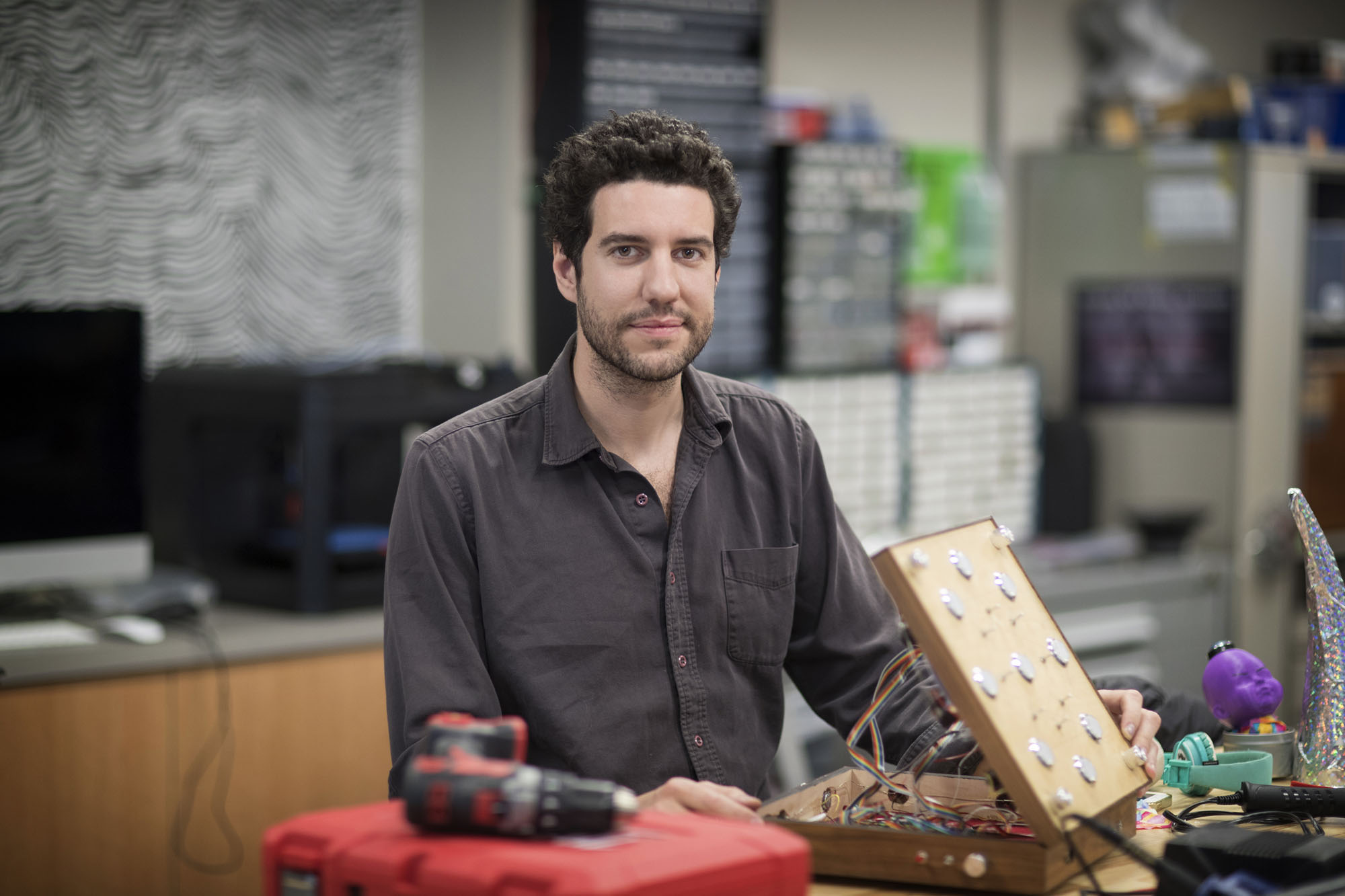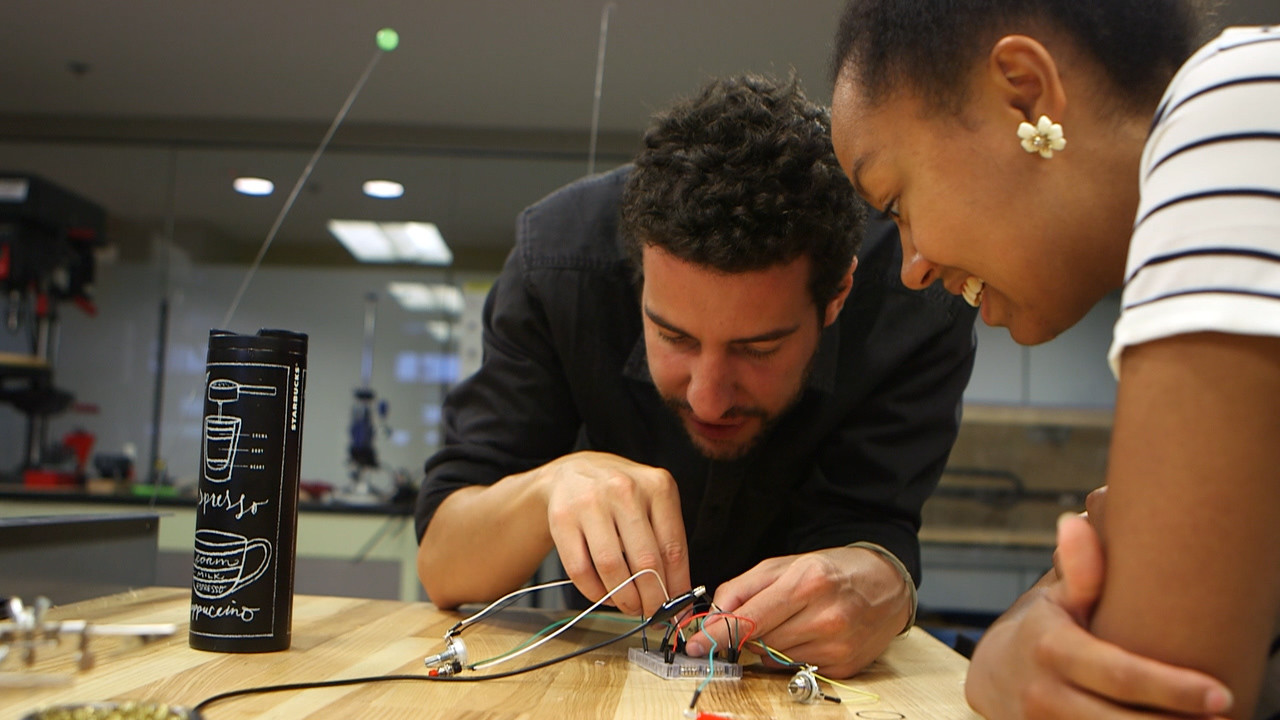Since musician and composer Peter Bussigel joined the University of Virginia faculty in 2015 as a Jefferson Teaching Resident in Interdisciplinary Arts, he’s been opening student’s ears to the potential of experimental electronic music.
“I took my first electronic music course at the end of my undergrad,” Bussigel said in his Wilson Hall office. “Here, we have a series of courses that focus on music and technology, and students can take electronic music classes through all four years if they want. Back when I was in college, there were just a couple classes. But they got me.”
Although he is a member of the McIntire Department of Music, Bussigel’s work is interdisciplinary and touches multiple departments across Grounds. His courses often combine sound with video, sculpture and theater.

Composer and intermedia artist Peter Bussigel works with sound, video and performance. His projects include audiovisual instruments, interactive software systems, sound installations and experimental videos. (Photo by Dan Addison, Universit
“The idea is to have someone here who can help connect the various creative departments on Grounds,” he said. “My classes include students from drama and studio art and music, but also computer science, engineering, architecture and other fields that have a creative component. Making music isn’t necessarily the only goal.”
Bussigel is currently co-teaching a yearlong course on art and civic engagement with Katie Schetlick, a lecturer in the drama department. It is one of four new civic and community engagement seminars being offered in the College and Graduate School of Arts & Sciences.
This semester, Bussigel taught a small-group course called “MICE: The Mobile Interactive Computing Ensemble,” which music department chair Matthew Burtner started to bring greater exposure to experimental electronic music performance. Students create electronic instruments and controllers to make music.
“The goal in most of my classes is to make something, be it sculpture or sound or performance. But I’m also interested in exploring technical tools in a practical, experiential way,” Bussigel said.
He has always tinkered with music. “I’ve played in orchestras and bands. I played guitar throughout high school and then got serious about the trumpet. I went to college to study trumpet and composition and ended up just majoring in composition,” he said. “Toward the end of college, I wanted to write music for films, but I also started, even then, to push toward more experimental musical textures and musical processes.”
Bussigel said for him, sound serves multiple purposes. “It’s both an expressive medium – so you compose pieces that convey something and communicate something. But it’s also a lens for exploring the world, a way of thinking about the world through your ears.”
He said working with basic synthesizers is a wonderful way for students to learn about sound and electricity “at a very fundamental level.”

“I think it’s a good thing to question expectations and to push against the values that you take for granted. So with electronic music and with these kinds of really rudimentary synthesizers, I ask students to engage sound with an open mind and find unexpected musical places that are personally exciting,” he said.
Bussigel said there is a tendency in some forms of popular music to lull people into a state of complacency, and he hopes to challenge that. “Confronting something that is difficult, I think, is often really motivating and inspiring,” he said.
“This happens all the time, where people push the boundaries and musical tastes shift. I think it’s good to tweak what we expect to hear and what we think of as music.”
Take a look and a listen to what Bussigel and his students are working on in this UVA Today video.
Media Contact
Article Information
December 12, 2016
/content/instructor-turns-students-loose-create-these-wild-new-forms-music

